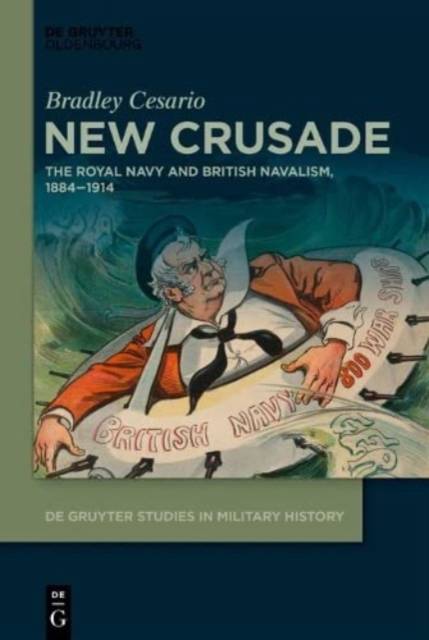
- Afhalen na 1 uur in een winkel met voorraad
- Gratis thuislevering in België vanaf € 30
- Ruim aanbod met 7 miljoen producten
- Afhalen na 1 uur in een winkel met voorraad
- Gratis thuislevering in België vanaf € 30
- Ruim aanbod met 7 miljoen producten
Zoeken
Omschrijving
The period between the mid-1880s and the First World War was the high point of the navalist movement - but the idea of 'navalism' took many forms, and meant different problems and different solutions to various groups within British society and the British government. New Crusade examines one form of the British navalist movement: directed navalism. As opposed to the broader cultural conception of British naval power, directed navalism consisted of a cooperative, symbiotic working relationship between three elite and self-selecting groups: serving naval officers (professionals), naval correspondents and editors working for national newspapers and periodicals (press), and members of Parliament who dealt with naval issues (politicians). Directed navalism meant agitation for a specific, achievable goal. It was the bedrock upon which the more popular and ultimately more successful cultural navalism of fleet reviews and music halls was built. Though directed navalism collapsed before the First World War, it was extraordinarily successful in its time, and it was a necessary precursor for the creation of a national discourse in which cultural navalism could thrive. Its rise and fall is the story of this book.
Specificaties
Betrokkenen
- Auteur(s):
- Uitgeverij:
Inhoud
- Aantal bladzijden:
- 225
- Taal:
- Engels
- Reeks:
- Reeksnummer:
- nr. 1
Eigenschappen
- Productcode (EAN):
- 9783110671575
- Verschijningsdatum:
- 6/04/2021
- Uitvoering:
- Hardcover
- Formaat:
- Genaaid
- Afmetingen:
- 150 mm x 221 mm
- Gewicht:
- 453 g

Alleen bij Standaard Boekhandel
+ 262 punten op je klantenkaart van Standaard Boekhandel
Beoordelingen
We publiceren alleen reviews die voldoen aan de voorwaarden voor reviews. Bekijk onze voorwaarden voor reviews.








